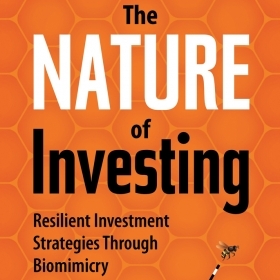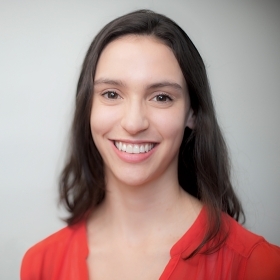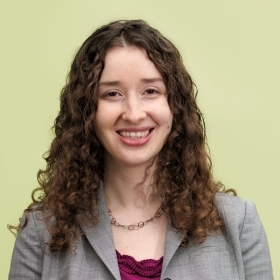When Ama Baafra Abeberese ’04 returned to Wellesley to interview for a position as assistant professor of economics, she found herself presenting her research in a room in Pendleton where she had once taken a class.
When Ama Baafra Abeberese ’04 returned to Wellesley to interview for a position as assistant professor of economics, she found herself presenting her research in a room in Pendleton where she had once taken a class. As if this weren’t surreal enough, many professors from her own student days were in the audience—including one who remarked that she’d just been reviewing the exam Abeberese had written for her course.
It appears that this early work as well as her later accomplishments passed muster, as Abeberese is now in her third year teaching at Wellesley. She finds Wellesley students to be the same as ever—“superwomen doing 1,001 different things”—and feels that she knows what life is like for them.
As a student herself, she double majored in economics and physics, and intended to become an engineer. But doubts her senior year led her to delay graduate school and spend two years in investment banking instead. While the work “wasn’t the right fit for my personality,” Abeberese says, she did find herself thinking a lot about the factors that make some countries rich, like the United States, and some poor, like her native Ghana, and wondering “how countries like mine can do better.” She moved on to work for an economics consulting firm for a year and then to get her Ph.D. in economics at Columbia.
Her research focuses on the constraints faced by manufacturing firms in developing economies. In one study, for instance, she examines how an electricity rationing program in Ghana in the late 1990s affected how firms invested in their operations; another study finds that high electricity costs in India led companies to alter their production processes. A study on the removal of trade barriers in Indonesia from the mid-’90s to 2003 analyzes how firms gained greater access to the resources needed to improve their own exports. Most recently, Abeberese has explored the constraints that prevent firms in India from formalizing—registering with the government—and the implications of that decision.
Abeberese currently teaches principles of macroeconomics, development economics, and international trade theory. “I love all three of them,” she says, and has enjoyed getting involved on campus again: This past year she spoke at Slater International Center about life after Wellesley and was invited for tea with students in Munger. Her one complaint? “People think I’m a student!”
Photo by Richard Howard


